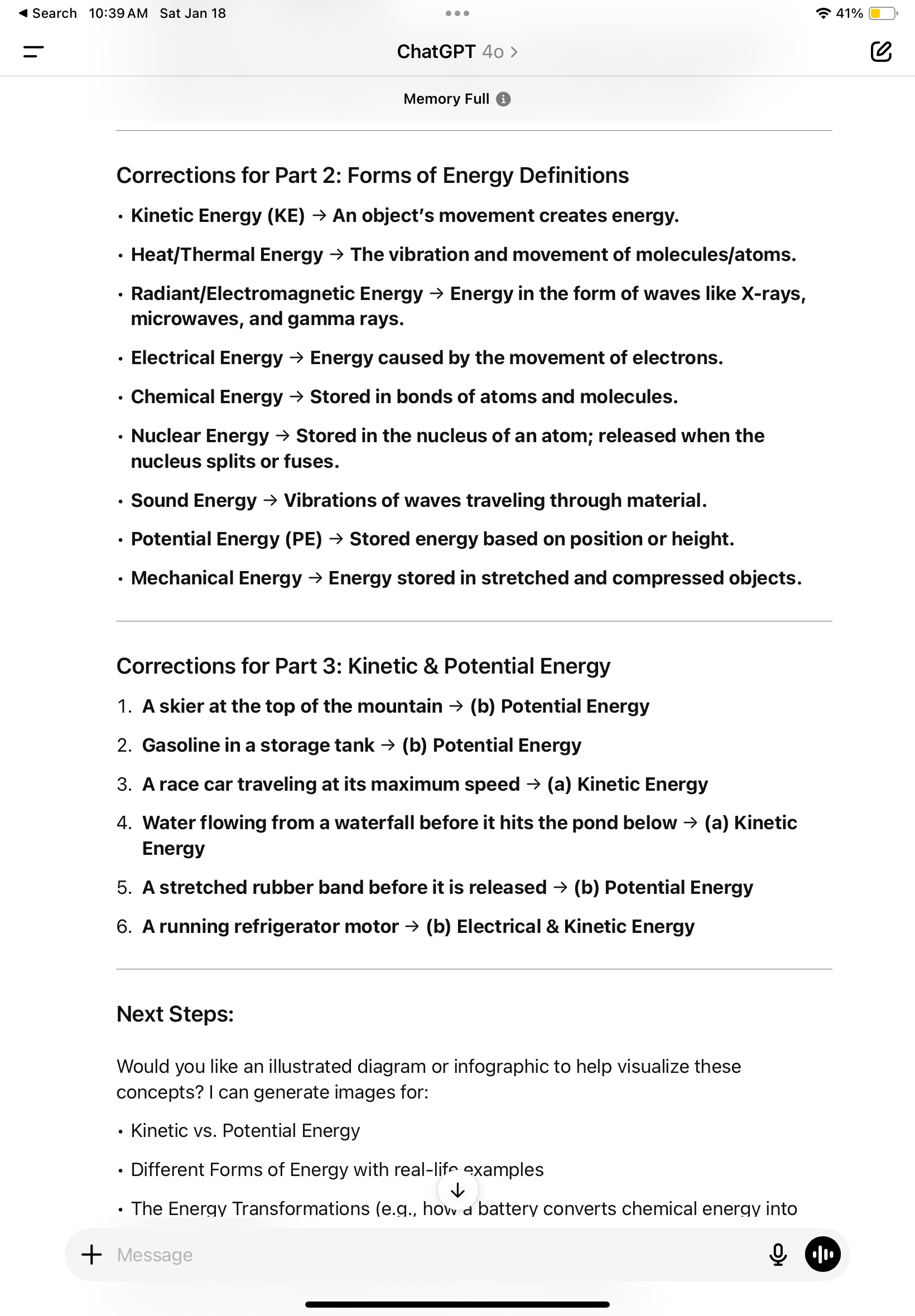What are the different forms of energy and how do they relate to kinetic and potential energy?

Understand the Problem
The image contains definitions of various forms of energy, including kinetic and potential energy, along with examples illustrating these concepts.
Answer
Energy forms include kinetic (movement) and potential (stored).
Energy forms include kinetic and potential. Kinetic energy involves moving objects like heat, light, and electrical energy. Potential energy is stored energy, such as gravitational, chemical, and nuclear energy.
Answer for screen readers
Energy forms include kinetic and potential. Kinetic energy involves moving objects like heat, light, and electrical energy. Potential energy is stored energy, such as gravitational, chemical, and nuclear energy.
More Information
Understanding that all energy is either kinetic or potential aids in comprehending how energy is stored or transferred. Examples include chemical energy in batteries and kinetic energy in wind.
Tips
Avoid confusing potential energy with inactive energy; it's energy stored due to position or structure.
Sources
- Forms of energy - U.S. Energy Information Administration (EIA) - eia.gov
- Types of Energy - Knowledge Bank - Solar Schools - solarschools.net
AI-generated content may contain errors. Please verify critical information